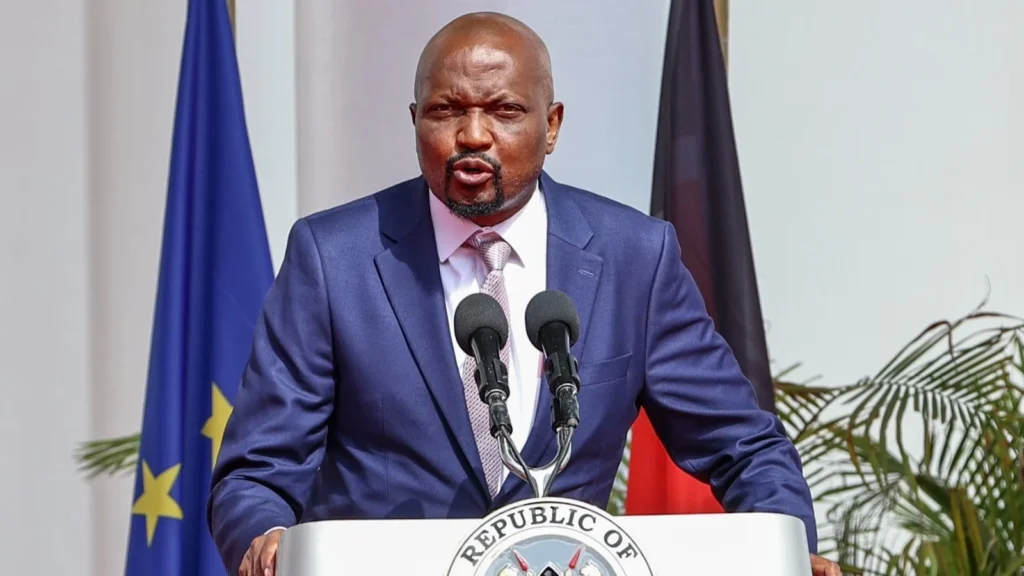President William Ruto’s Senior Economic Advisor, Moses Kuria, has made a bold prediction that the 2027 general election in Kenya will not be a typical presidential showdown, but rather a moment of national consensus akin to the historic 2002 election that swept Mwai Kibaki to power.
Speaking on Citizen TV on June 22, Kuria said Kenya’s political climate is shifting away from divisive electoral contests toward unity, urging political leaders to prioritize the country’s stability over partisan ambitions. “Some people are training for a football match that will not happen,” he remarked, suggesting that those preparing for a fierce electoral battle will be surprised.
Kuria drew parallels to 2002, when opposition leaders united under the National Rainbow Coalition (NARC) to end KANU’s four-decade grip on power. He noted that Kibaki’s overwhelming victory accepted across the political spectrum was a rare moment of unity that saved Kenya from prolonged political unrest.
“2027 will be like 2002. There will be no presidential election there will be a consensus,” Kuria declared, predicting a scenario where political heavyweights agree on a single candidate to avoid turmoil. He dismissed comparisons to the tense elections of 2013 and 2017, saying Kenya must now prioritize harmony over confrontation.
“We have two options: go out one day and destroy the nation, or let’s agree. Let there be honour among men and women,” Kuria said, calling for dialogue and mutual respect among political leaders.
Despite advocating for consensus, Kuria reiterated his own presidential ambitions for 2027, insisting he enjoys national appeal. “I can do a rally in any part of this country without the local MP. I’m a villager in every part of the country Garissa, Wajir, wherever,” he said.
As the country looks ahead to 2027, Kuria’s remarks hint at a potential shift in political strategy one that could trade fierce competition for collaborative leadership in an effort to safeguard Kenya’s future.

